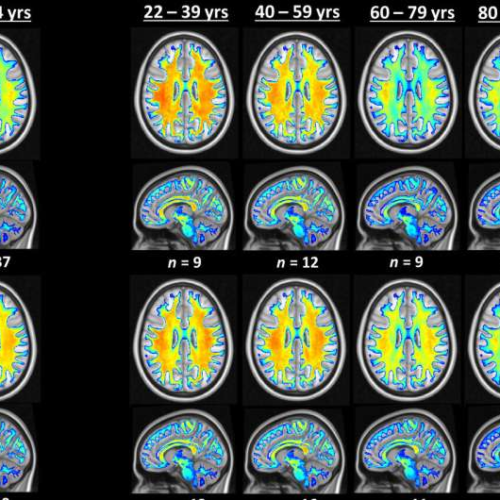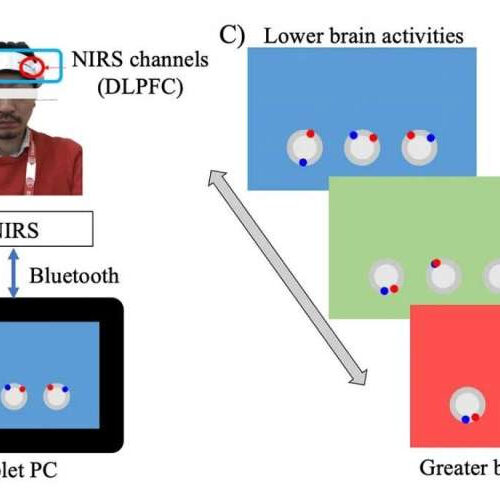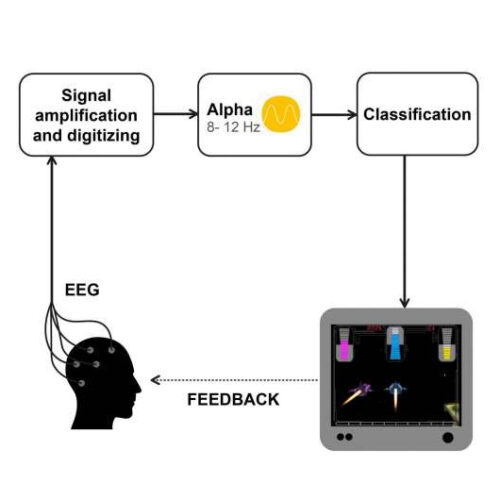by Ian McDonough and Michael Dulas, The Conversation Credit: CC0 Public Domain Some 2.3 million of U.S. adults over 65—more than 4%—have a diagnosis of dementia. But even without a diagnosis, a certain amount of cognitive decline is normal as age sets in. And whether it’s due to fear of cognitive decline or noticing lapses in cognition...
Tag: <span>Brain Training</span>
Study finds ‘brain endurance training’ boosts cognitive and physical abilities in older adults
Mean (SE) walk, chair-stand, and arm curl exercise performance as a function of group (BET, Exercise, Control), test (pre-, mid-, post-, follow-up) and state (before Stroop, after Stroop). T tests: B = different from BET group, E = different from Exercise group. Credit: Psychology of Sport and Exercise (2024). DOI: 10.1016/j.psychsport.2024.102757 Brain endurance training (BET), a combined cognitive and exercise training...
Brain training: Study links cardiovascular fitness to brain health
August 30, 2024 by Chris Packham , Medical Xpress Examples of axial and sagittal MWF parameter maps averaged across participants with either lower, moderate, or higher VO2max levels. Participants were drawn from the full age range as well as from restricted age ranges to mitigate the effect of age. Results are shown for representative slices....
Who benefits from brain training and why? Study shows ‘near transfer’ predicts ‘far transfer’
by University of California – Riverside Participants at the UCR Brain Game Center play a working memory training game. Credit: Audrey Carrillo, Brain Game Center, UC Riverside. If you are skilled at playing puzzles on your smartphone or tablet, what does it say about how fast you learn new puzzles, or, more broadly, how well...
Who benefits from brain training and why? Study shows ‘near transfer’ predicts ‘far transfer’
by University of California – Riverside Participants at the UCR Brain Game Center play a working memory training game. Credit: Audrey Carrillo, Brain Game Center, UC Riverside. If you are skilled at playing puzzles on your smartphone or tablet, what does it say about how fast you learn new puzzles, or, more broadly, how well...
Brain training with neurofeedback shows enhanced benefits on cognitive functions
by Tohoku University The new brain training with neurofeedback system. Credit: Rui Nouchi Brain training is structured and repeated practice that aims to improve cognitive functions. Studies on the impacts of brain training have produced mixed results. Nevertheless, researchers are still interested in exploring brain training’s effects. Now, a research group led by associate professor...
Managing attention deficit disorder by training the brain
by University of Geneva Neurofeedback loop: The EEG is recorded and the participant receives instant feedback from his/her attention level captured by the alpha rhythm through a computer game, allowing to train the brain to concentrate. Credit: UNIGE Attention deficit hyperactivity disorder (ADHD) affects about 7% of children, with a two out of three chance of...
Scientists launch trial to test whether brain training could help people lose weight
by Cardiff University Credit: Cardiff University Researchers at Cardiff University have launched a new app called “Restrain” to test whether it is possible to lose weight through a type of brain training involving simple games. The team from the University’s Brain Research Imaging Center (CUBRIC) is calling for volunteers to take part in the trial, which will...
‘Brain training’ may be an effective treatment for post-traumatic stress disorder
LAWSON HEALTH RESEARCH INSTITUTE LONDON, ON – Neurofeedback, also called ‘brain training,’ consists of exercises where individuals regulate their own brain activity. In a new study from Lawson Health Research Institute and Western University, researchers have found that neurofeedback may be an effective treatment for individuals with post-traumatic stress disorder (PTSD). Published in NeuroImage: Clinical, the clinical trial found...
NASA Brain Training Tech Makes Smart Glasses
A new pair of smart glasses uses a technique invented at NASA to measure users’ brainwaves and tell them how well they’re paying attention. Others have used the NASA formula to help people train themselves to focus, as has the company’s founder, but Narbis’ new smart glasses are getting much quicker results. Narbis glasses train...







